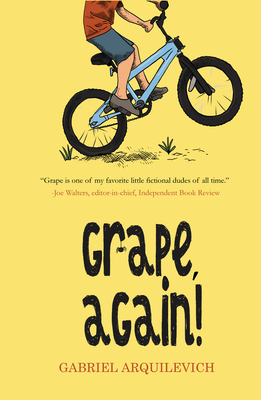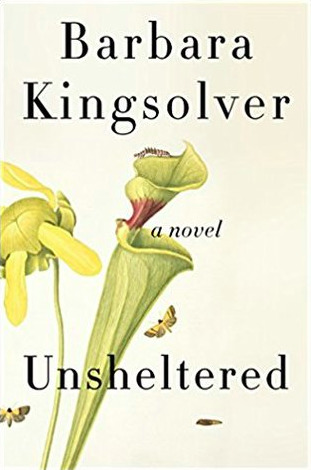
Unsheltered by Barbara Kingsolver is the story of a house. Or two houses. Specifically, it’s about Willa Knox, a writer whose family has inherited a house in Vineland, New Jersey, that is literally falling down. Her family’s pretty decrepit, too, in a fairly typical way. A parallel narrative gives the story of an earlier occupant of a house at the same address—it was falling down then, too—and in the present time Willa does some research in which she learns about this man, Thatcher Greenwood. In the present, Willa’s family faces various struggles, some related to the condition of the house, some the state of healthcare, some climate change, some the state of journalism in the 21st Century, some the challenges facing educators in higher education. The story set in the 1870s addresses some of the same issues, specifically the opposition scientists faced to Darwinism, the privilege of the rich and powerful, rampant materialism, etc. While I ultimately enjoyed the book, it was more of a struggle for me than Kingsolver’s books usually are, possibly because of the two narratives that seemed unconnected at first.

The Cycle by Michael Kaiser is a good companion to another recent read, Kaiser’s Strategic Planning for the Arts. While the latter book goes into more detail on planning (handled in this book in just one chapter), The Cycle gives a fuller explanation of the virtuous cycle that is touched on in a single chapter of Strategic Planning. For Kaiser, the Cycle is the process by which an arts organization develops programming, markets the programming (and the institution), thereby building “family” (patrons, donors, volunteers, etc.), which generates revenue (earned and contributed), that allows for more programming. It’s not a complicated concept, but each part of the cycle has its own complications and Kaiser has good advice for programming, marketing, and the maintenance and growing of the family to keep the whole wheel spinning. (Given the substantial overlap in the two books, I’m not sure I’d recommend reading both; either one would probably be sufficient.)

Leopard Lady: A Life in Verse by Valerie Nieman is an impressive short novel in verse by a friend and fellow Queens University MFA Alum. The book tells the story of Dinah, born into chaos in 1935 and raised as part servant and part daughter by a foster family until she joins the circus as an attraction. Most of the poems are in Dinah’s voice—brilliantly capturing her vernacular—but some are in the voice of the Professor, the man who comes to care for her. The poems deal with a variety of issues that are pertinent to the time period and even now, including racial discrimination and exploitation of women.

Restless by William Boyd is one of the most enjoyable spy novels I’ve ever read, right up there with LeCarre’s best. It begins in 1976 with a single mother beginning to learn about the secret life her mother led during World War II. The mother, sensing that someone is watching her and may be trying to kill her, begins to give her daughter installments of a memoir about her life as a spy, recruited in France by the British Secret Service and then posted to the United States. Her unit’s goal, as it develops, was to push the US to join the war against Germany because it was felt that the UK was going to lose without them. We learn all about her activities—lots of interesting and credible cloak and dagger stuff—in sections that are interspersed with the daughter’s more ordinary life, dealing with her young son, her students (she teaches English to foreign students while she is ostensibly completing her thesis in history), and her odd houseguest, the brother of her son’s father. Very well done.
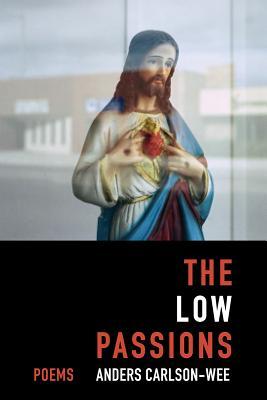
The Low Passions by Anders Carlson-Wee is one of the poetry collections I picked up after a reading at Powell’s Books in Portland, OR. The jacket describes the book as “explosive and incantatory,” and that’s a fitting description. The poems are always powerful, touching on themes of gratitude, survival, and family.
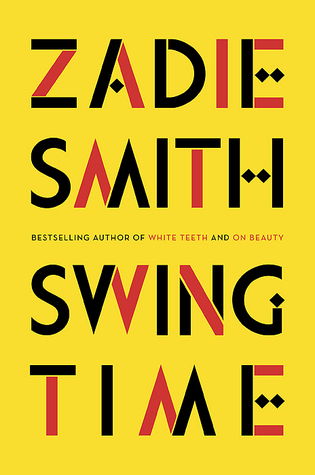
Swing Time by Zadie Smith is a jumble, and I think its disjointedness detracts from the narrative and certainly undermines its forward momentum for me. The narrator in the present is working for Aimee, an Australian/International pop star, but she’s obsessed with Tracey, her childhood friend, a dancer who has performed in shows on the West End stage in London. The reader knows from the prologue that the narrator has returned to London from New York after some apparent scandal, but the nature of it isn’t known until near the end of the book. In the meantime, we relive the events of her life—a jumble of flashbacks to her childhood with Tracey, more recent recollections of her own parents, and the most recent experience working for Aimee, in particular as Aimee seeks to build a school for girls in The Gambia. These threads do come together somewhat in the end, but it still feels as though Smith was telling three different stories about this narrator rather than one novel.
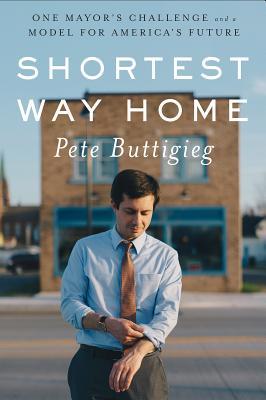
Shortest Way Home by Pete Buttigieg isn’t your typical political manifesto by a candidate seeking higher office. Buttigieg, as everyone knows by now, is the mayor of South Bend, Indiana, and the book is about how that came to be and how he has succeeded in that role. It’s written in a pleasant, conversational voice, and while it doesn’t feel boastful, one does come away with admiration for “Mayor Pete.” He’s clearly smart, equally interested in promoting people and business, speaks several languages, plays piano, etc. And while there is some discussion of his relationship with his husband, that’s a small part of the book. Here are some other things I learned from the book: (1) When he was an undergraduate at Harvard, he participated in the Institute of Politics, which is housed at the Kennedy School of Government, where I earned a degree in the ‘90s. I was also on campus in late 2000, during his first year (I think) when I attended an executive program. (2) When he worked for McKinsey, his office was in Chase Tower in Chicago. When I worked in Chicago in the ‘80s, my office was also in Chase Tower, except it was called One First National Plaza back then. And it was in that building, in the early ‘90s, where Barack Obama met Michelle when she was an associate and he an intern at my old law firm. (3) He feels about Mike Pence, with whom he had to deal during Pence’s time as Governor of Indiana, the same way we all should—revolted.

